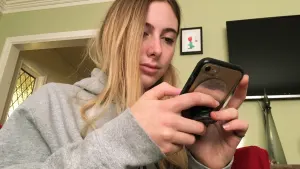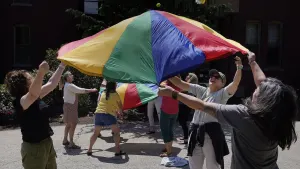More Stories
News 12 spoke with former Food and Drug Administration Commissioner and member of Pfizer's board of directors Dr. Scott Gottlieb about where we are headed in the COVID-19 pandemic.
Gottlieb also discussed COVID-19 cases among children and recent developments regarding a vaccine for those under the age of 11.
Gottlieb said it's going to be hard to control cases in schools because of the delta variant. He recommends that kids go into the new school year with precautions in place because health experts currently do not know what the dynamics are going to be and the difficulty they're going to have with the highly contagious delta variant in the school setting.
With Pfizer submitting its first round of data for a COVID-19 vaccine for children under 11, Gottlieb said it will take about four weeks for the FDA to review the data and, best case scenario, there could be emergency authorization for the dose by late October. If there is a delay, Gottlieb believes the FDA will grant emergency authorization by mid-November. However, Gottlieb is confident that developments are on track.
Once emergency use authorization is granted, Gottlieb believes many parents will consult with doctors and pediatricians, who will also have to work hard to reassure parents that are concerned about the vaccine for their children.
Gottlieb said there was no mixed messaging when it came to COVID-19 vaccine boosters and clarified that it's a process in which the FDA renders a judgement on the boosters, which in turn creates a second step where Centers for Disease and Control Prevention weighs in on eligibility.
Gottlieb also talked about his book "Uncontrolled Spread: Why COVID-19 Crushed Us and How We Can Defeat the Next Pandemic."
He explained that when the COVID-19 began to spread, health agencies had a plan for a pandemic that involved influenza, but the plan was not applicable to coronavirus.
Gottlieb also noted how differently presidential administrations were prepared to take on a pandemic.
MORE: Stop the Spread
He explained that the focus shifted back and forth between a natural threat and a deliberate threat, like bioterrorism. In turn, there was never a consistent focus on natural threats through successive administrations, he said.
Going forward, Gottlieb said health experts will have to think differently about the risks. He said they will have to ensure to have the capacity domestically to scale a response, building better resiliency like newer antibiotics against new biological pathogens and better collection of data to generate guidance.
More from News 12
1:28

5 simple steps for long-term benefits to your health and heart
1:32

8 tips for working safely during hot weather
3:31

Guide: Ways to set your child up for financial success
3:18

Guide: The importance of good sleep and how to get it

Guide: Mental health resources available in the tri-state
9:36
